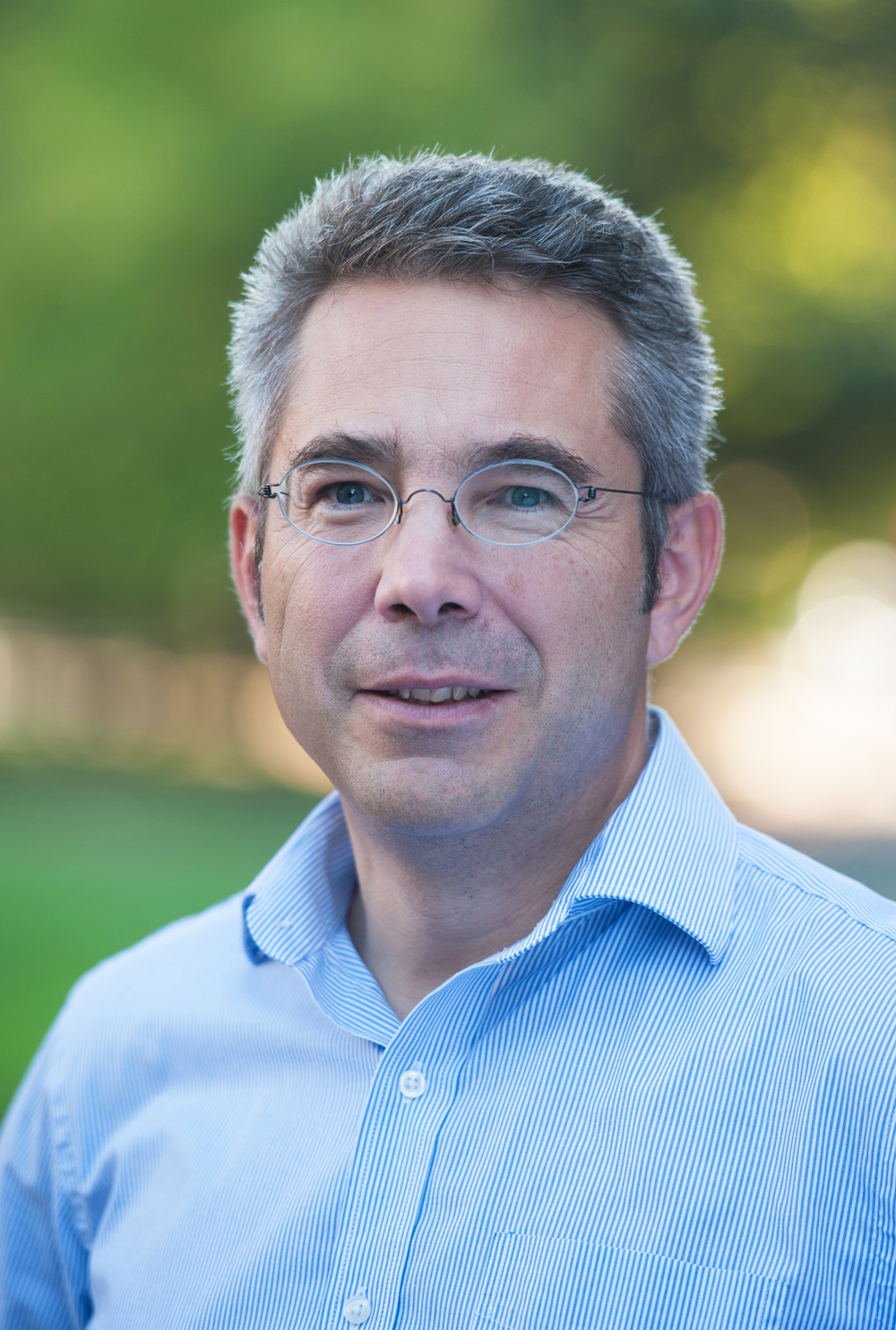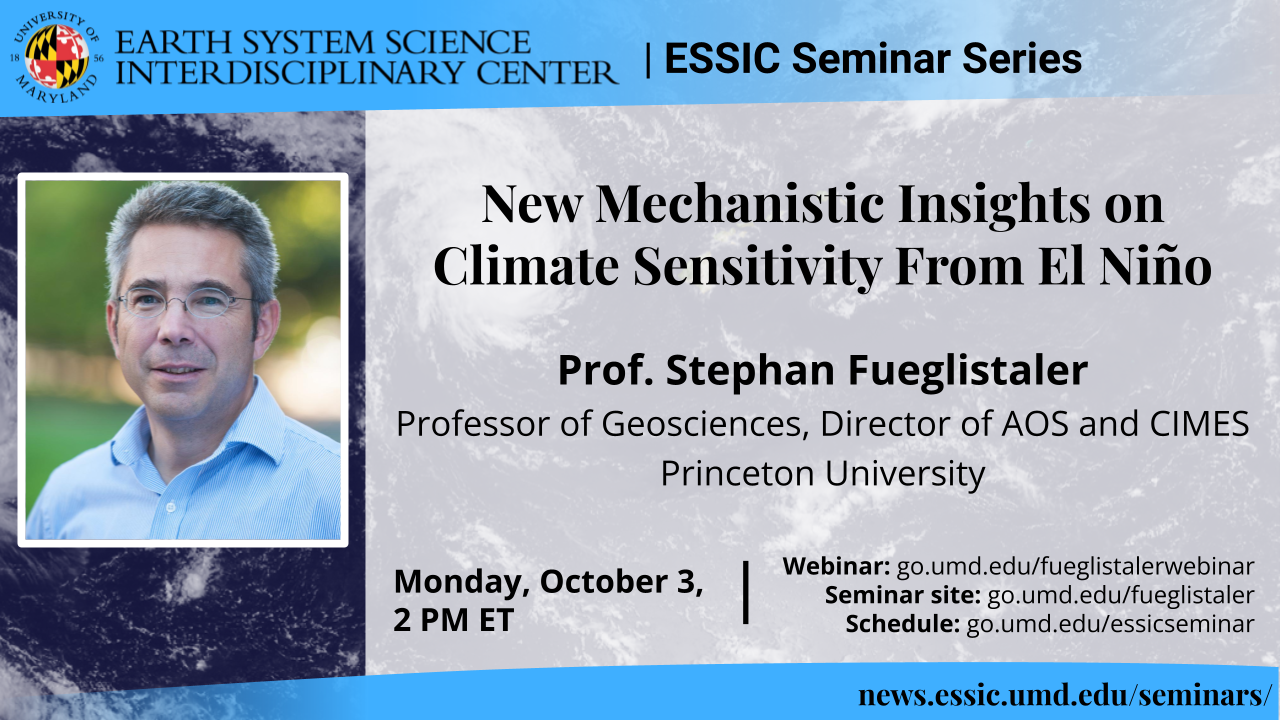
New Mechanistic Insights on Climate Sensitivity From El Niño

Prof. Stephan Fueglistaler
Professor of Geosciences, Director of AOS and CIMES
Princeton University
Monday October 3, 2022, 2 PM ET
Abstract:
The cloud radiative feedback remains a large source of uncertainty for global warming predictions. In coupled Ocean-Atmosphere General Circulation Models (GCMs), the net cloud radiative feedback is generally positive. In atmospheric GCM simulations with Sea Surface Temperature (SST) reconstructions over the last 150 years, however, the cloud radiative feedback shows multi-decadal oscillations with a prominent strongly negative feedback in the 1980s and 1990s. It is argued that the variations in cloud radiative feedback are due to global-scale variations in atmospheric static stability originating over the tropical oceans. Lack of sufficiently reliable measurements of top-of-atmosphere (TOA) radiative fluxes prior to the year 2000 preclude observational confirmation of the mechanism’s effect on clouds. However, a fresh look at the changes in the atmospheric state over the course of the well-known El-Nino/Southern Oscillation shows the same mechanism at work, and TOA measurements from NASA’s CERES project confirm its impact on clouds and their radiative effect. Closer inspection of the evolution of the atmospheric state and its coupling to the underlying SSTs over an ENSO event reveals a previously not recognized role of the tropical large-scale wind field. This mechanism may also control atmospheric stability and cloudiness on long timescales, and we speculate that it may be a critical factor for climate sensitivity.
Biosketch:
Dr. Stephan Fueglistaler is Professor of Geosciences at Princeton University, Director of the Program in Atmospheric and Oceanic Sciences (AOS) and Director of the Cooperative Institute for Modeling the Earth System (CIMES) at Princeton University. Before obtaining his PhD from ETH Zurich, he worked several years in a start-up company in the early days of the internet.
Dr. Fueglistaler’s research spans a wide range across disciplinary boundaries – from cloud microphysics, trace constituent transport, radiative transfer, large-scale geophysical fluid dynamics, land-atmosphere interactions to analysis of climate change. The common thread of Dr. Fueglistaler’s research is that it is driven by curiosity and the tension arising from the combination of being a reductionist by nature and a desire to understand the climate system at the process level.
Webinar:
Event site: https://go.umd.edu/fueglistaler
Zoom Webinar: https://go.umd.edu/fueglistalerwebinar
Zoom Meeting ID: 955 1034 0453
Zoom password: essic
US Toll: +13017158592
Global call-in numbers: https://umd.zoom.us/u/aMElEpvNu
For IT assistance:
Cazzy Medley: cazzy@umd.edu
Resources:
Seminar schedule & archive: https://go.umd.edu/essicseminar
Seminar Google calendar: https://go.umd.edu/essicseminarcalendar
Seminar recordings on Youtube: https://www.youtube.com/user/ESSICUMD

